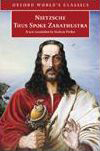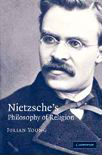- Home
- The Agonist
- Current Issue
- VOLUME VI, ISSUE I & II, SPRING & FALL 2013
VOLUME VI, ISSUE I & II, SPRING & FALL 2013
-
Kant, Nietzsche and the Moral Prohibition of Treating a Person Solely as a Means
By Stefan Lorenz Sorgner
You may download the entire book review as Adobe PDF format clicking PDF icon on the left. If you need some clarifications about copyright or usage rights, please contact us at nceditors@ietzschecircle.com.
A quick preview of essay...
The concept of human dignity is central in many constitutions world-wide. It plays a particularly central role in the German foundational law. Kant’s concept of dignity is particularly influential in this context. There are two aspects that German law inherited from Kant and both of which are highly problematic. Firstly, even though it is acknowledged by the German constitution that animals are not objects, they are supposed to be treated like objects. Hence, the categorical dualistic separation of animals from human beings is implicitly contained in this judgment. Secondly, it is legally forbidden to treat a person solely as a means. This insight applies both to oneself as well as to other persons, which becomes clear in the following two regulations. Firstly, peep shows in Germany are legally forbidden, even if it is the case that it is the dancer’s autonomous wish to earn money in that way. Secondly, it is forbidden to shoot down a hijacked airplane, even though it seems to fly directly into a nuclear power station, as long as there are innocent persons on board. In both cases, the regulation was justified by reference to the Kantian thought that it is morally false to treat a person solely as a means. In the following reflections, firstly, I will question a basic assumption on which this regulation rests; secondly, I will consider which options follow from these reflections; and thirdly I will analyze the challenges related to the options mentioned. Thereby, it is supposed to become clear that the German law needs to be altered concerning the moral prohibition of treating a person solely as a means.
1. Challenging Kant’s Basic Assumptions
The Kantian moral prohibition of treating a person solely as a means rests on the distinction between persons and things. Persons participate in the world which is governed by the laws of nature and the laws of freedom. Things, however, participate solely in the world which is governed by the laws of nature. This distinction implies that only persons do not solely belong to the natural world (Kant 1902ff, vol. 4, 428-434). Kant did not affirm an anthropocentric conception of personhood, but a logocentric position of personhood, as it was not necessary for him that only human beings are persons. In the German legal context, however, the distinction between persons and things turns into an anthropocentric conception, as only human beings are seen and legally treated as persons.
Is this a plausible anthropology today? Darwin, Nietzsche and contemporary posthumanist thinkers might have reasons for doubting this conception (Badmington 2000, 9). Given recent biological research; given that human beings and great apes have common ancestors and given that a basically naturalist understanding of the world applies, it is more plausible to hold that there is merely a gradual difference between human beings, great apes, plants and maybe even stones. Nietzsche’s anthropology provides a possible non-dualist anthropology, which attempts to grasp the related concepts philosophically. Thereby, all entities turn into constellations of power-quanta and organisms and human beings are seen as a specific type of animal, sometimes even a “sick animal” (KSA, GM, 5, 367). However, this sickness in Nietzsche is not necessarily a deprecation of human beings. The aspect of sickness has several implications. It means that they have developed a special capacity, namely the capacity of not immediately having to follow their instincts. This can have both beneficial as well as problematic consequences. It can be beneficial as it enables human beings to create culture, develop technologies and enable them to realize sublimation processes. It can be problematic, as it separates acts from the immediate realization of instincts whereby instincts in many cases are more reliable concerning one’s own interest than intellectual reflections. (Sorgner 2010, 184-191)
The moment is the matrix of creation: most patterns of existence will be repeated insuring continuity, some will be slightly modified, and a few might be radically revisited. Oral historical matriarchal lineages of time and herstories of bodies are also precious sources to be investigated. For instance, Julia Kristeva, in her essay “Women's Time” (1979)[5], argues that female subjectivity is divided between cyclical, natural time (repetition, gestation, menstruation) and monumental time (eternity, myth of resurrection, the cult of maternity). She is actually pointing out to Nietzsche as her direct source for such a definition of temporal dimensions.[6]These modalities are set off against the time of linear history from where women have been the casualties, the outsiders of the socio-symbolic time contract.
2. Moving Beyond Kant’s Basic Assumptions
As both philosophical and scientific reflections lead us to doubt the Kantian anthropology on which the German foundational law rests, what can be done to take these insights into consideration? It needs to be stressed that it is problematic to refer to the posthumanist insights as the ones who are generally accepted. This is not the case. In Germany there are many citizens who still uphold a Christian understanding of the world, which rather affirms the basic assumptions of Kantian reflections. Still, it needs to be asked whether a social-liberal democracy ought to be based upon a premise that affirms a strong metaphysical anthropology, namely one which is most consistent with an anthropology that sees only human beings as being constituted out of a material body and an immaterial soul. Animals, plants and stones on the other hand are regarded as objects and as not participating in any world outside the material naturalist one. This seems to go against the fundamental norm of freedom on which democracies rest. In the case of Germany it can be said that at least thirty per cent of citizens can be classified as naturalists, skeptics or atheists who are being treated paternalistically by this type of legal regulation. A problem related to this group of people is that that they are not politically organized enough to efficiently act against such regulations. Members of the Catholic and the Protestant churches on the other hand have strong institutions and hence have an enormous amount of power to influence political decision making processes. However, given that at least one third of the population is treated paternalistically in an aggressive manner by these types of regulations goes against the central value the norm of freedom ought to have within a democracy. Therefore, these regulations ought to be revised.
to continue reading, download entire essay as Adobe PDF format ...
The Agonist
-
Thus Spoke ZarathustraBy Friedrich NietzscheA new translation by Graham Parkes
Oxford University Press, 2005
Reviewed by Horst HutterThis new translation of Nietzsche’s magnum opus is by far the best available in the English language. It should find its way to the desk of all students who do not have access to the original German.
-
Nietzsche’s Philosophy of ReligionBy Julian YoungCambridge University Press, 2006
Reviewed by Horst Hutter,
Concordia UniversityEvery student of Nietzsche in the Anglophone world should read this book. It is a most able treatment of a much-ignored and much-misunderstood topic close to the very heart of the writings of this seminal thinker.
Support Us
Please consider donating! The NC is a not-for-profit organization. As an independent organization that receives no assistance from any institution, the NC relies on your magnanimity to sustain itself. Please help support the activities of the NC with a donation Donations of any kind, whether of money, services, equipment, or in-kind gifts, are all of great necessity and deeply appreciated.
Subscribe
To receive site updates, news, and announcement from NC via email. To do so, you simply need to provide your email address below.





